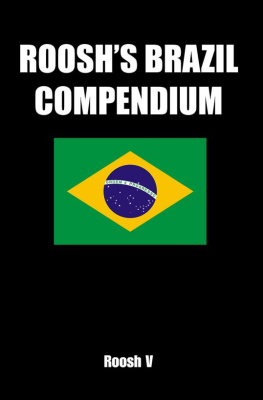Editor
Silvia Helena Koller
Psychology Institute, Federal University of Rio Grande do Sul, Porto Alegre, Rio Grande do Sul, Brazil
ISBN 978-3-030-11335-3 e-ISBN 978-3-030-11336-0
https://doi.org/10.1007/978-3-030-11336-0
Library of Congress Control Number: 2019933727
Springer Nature Switzerland AG 2019
This work is subject to copyright. All rights are reserved by the Publisher, whether the whole or part of the material is concerned, specifically the rights of translation, reprinting, reuse of illustrations, recitation, broadcasting, reproduction on microfilms or in any other physical way, and transmission or information storage and retrieval, electronic adaptation, computer software, or by similar or dissimilar methodology now known or hereafter developed.
The use of general descriptive names, registered names, trademarks, service marks, etc. in this publication does not imply, even in the absence of a specific statement, that such names are exempt from the relevant protective laws and regulations and therefore free for general use.
The publisher, the authors and the editors are safe to assume that the advice and information in this book are believed to be true and accurate at the date of publication. Neither the publisher nor the authors or the editors give a warranty, express or implied, with respect to the material contained herein or for any errors or omissions that may have been made. The publisher remains neutral with regard to jurisdictional claims in published maps and institutional affiliations.
This Springer imprint is published by the registered company Springer Nature Switzerland AG
The registered company address is: Gewerbestrasse 11, 6330 Cham, Switzerland
Foreword
Almost everything we learn about the field of psychology in our university studies quickly becomes out of date. I studied as an undergraduate student at Yale University from 1968 to 1972 and then as a graduate PhD student at Stanford University from 1972 to 1975, and I can say with confidence that almost nothing I learned, including even methods of statistical analysis, is of much use today. It is a tribute to the field that it advances so rapidly that what one learns at one time becomes dated so quickly and so completely. What, then, is the value of studying psychology (or, really, any scientific field) in university if what one learns quickly becomes outdated?
The main value, I believe, is learning how scientists think about problems. In particular, what makes a problem scientifically or societally important? How does one translate an idea about a phenomenon into a research study? How does one interpret data analysis in terms of a prior theory so that the theory sheds light on the data rather than leading one astray? How does one relate one stream of scientific work to another? These are the kinds of questions that universities can teach their students to answer. Universities, thus, have a great deal to teach their students about how scientists explore the world and the human mind.
There is yet another problem, however, besides work going out of date. And this other problem is the enormous challenge of separating the wheat from the chaff in scientific research. When I was early in my career, there were perhaps a dozen first-rate journals to which one might submit ones work and another dozen that were just below the top ones. Today, journals have proliferated to the point that it is difficult even to recognize what the important ones are. Some of the new journals are top flight, but others are of much more variable quality, and some are journals in name only. Even within the reputable journals, however, there is a great variation in the quality of work that is published.
What is to be done? Susan Fiske, Donald Foss, and I thought that we might make a meaningful contribution to the education of the next generation of research (and possibly other) psychologists by editing a book, which eventually was entitled Scientists Making a Difference: One Hundred Eminent Behavioral and Brain Scientists Talk About Their Most Important Contributions (Sternberg et al. 2016). As, at the time, past, present, and future presidents of the Federation of Association in Behavioral and Brain Sciences in the United States, we had the dual goal of educating our young people and of supporting the Federation through the contribution of all our royalties. We used objective criteria to choose these highly eminent psychologists, based on the work done by Diener et al. (2014). The essays, we believed, represented the best of what psychology had to offer in the latter twentieth and early twenty-first centuries. All contributing authors were invited to talk about their work, what motivated the work, and what they thought the contribution of the work was to the field and to society. A notable limitation of the volume, though, was that North Americans were way overrepresented, with relatively few essays from outside the North American continent. Thus, the scope of the work could not possibly encompass all of the great work being done on other continents, such as in South America. Brazil, one of the largest countries in the world by population, had no representation at all in our volume.
I therefore am delighted that Silvia Koller has chosen to edit a related companion volume, published by Springer, entitled Psychology in Brazil: Scientists Making a Difference. As did Fiske, Foss, and I, she provided the scientists with a distinctive list of questions to address. Her questions were 1. What is your most important scientific contribution? 2. Why do you consider it as your most important contribution? 3. How did the idea come about? (Mentors, readings, contacts, teams, inspiration, etc.) 4. How does your contribution add to the production of international scientific knowledge? 5. How is your contribution reflected in the world outside academic psychology? 6. What would you like to see as the next steps in theory and/or research, based on what you produced?
The essays in this volume represent some of the best minds and the best work Brazilian psychology has to offer. The essays are true gems, and I am confident that readers of the book will be well rewarded by spending their time learning how the greatest minds in Brazilian psychology think about and tackle difficult problems in psychology. A book such as this one enables students of psychology (of any age!) to learn how great minds in the field think and perhaps to emulate these great minds and to produce their own outstanding research. I am confident every reader will find a treasure chest of information in this book. Enjoy it please, just as I have.
References
E. Diener, S. Oishi, J.-Y. Park, An incomplete list of eminent psychologists of the modern era. Arch. Sci. Psychol. , 2032 (2014)
R.J. Sternberg, S.T. Fiske, D.J. Foss (eds.), Scientists Making a Difference: One Hundred Eminent Behavioral and Brain Scientists Talk About Their Most Important Contributions (Cambridge University Press, New York, 2016)
Robert J. Sternberg















